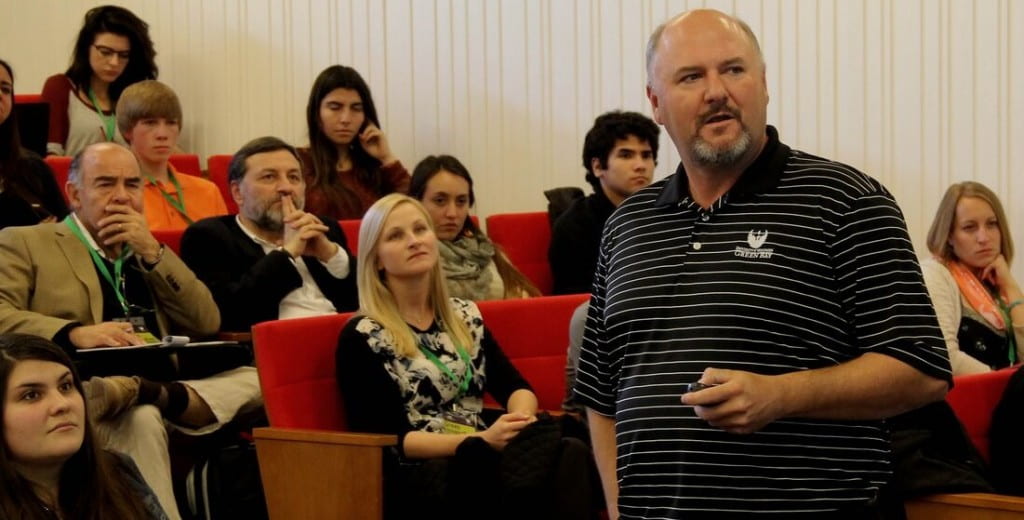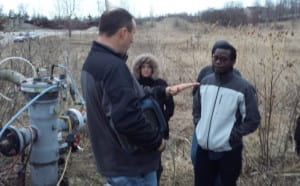Teaching
 As a member of the faculty at the University of Wisconsin-Green Bay, my first priority is to provide quality education at both the undergraduate and graduate level. Because of my academic background in environmental engineering and business administration, as well as my work experience in industry, government and consulting, I focus on applied and practical approaches to teaching. Additionally, I introduce students to the importance of local and regional issues through community based research projects and industry tours. Upon graduation, it is gratifying to see former students having a positive impact on their communities and the environment by working for industry, government agencies, or consulting firms.
As a member of the faculty at the University of Wisconsin-Green Bay, my first priority is to provide quality education at both the undergraduate and graduate level. Because of my academic background in environmental engineering and business administration, as well as my work experience in industry, government and consulting, I focus on applied and practical approaches to teaching. Additionally, I introduce students to the importance of local and regional issues through community based research projects and industry tours. Upon graduation, it is gratifying to see former students having a positive impact on their communities and the environment by working for industry, government agencies, or consulting firms.
Engineering Technology
Engineering Mechanics: Displacement, velocity and acceleration components, kinematics of particles using rectilinear and curvilinear coordinates, relative motion, solution and plane motion of rigid bodies, work and potential energy of particles and rigid bodies, linear and angular impulse and momentum, central force motion.
Solar and Alternative Energy Systems: Study of alternate energy systems which may be the important energy sources in the future such as solar wind biomass fusion, ocean thermal, fuel cells, magneto hydrodynamics.
Environmental Science
Energy and Society: The issues relating energy and society rather than energy technology: global energy flows; sources of energy; energy-related problems, policy and conservation; energy growth; future scenarios.
Pollution Control: Government regulations, manufacturing processes, waste minimization, pollution prevention methods and pollution control techniques for major industries. Field trips are required.
Pollution Prevention: Emphasizes principles of pollution prevention and environmentally-conscious products, processes and manufacturing systems. Also addresses post-use product disposal, life cycle analysis, and pollution prevention economics.
Resource Management Strategy: Application of the principles of systems analysis to the sustainable use of material and energy resources. Emphasis on the use of analytical tools of economics (e.g., costs-benefits, cost-effectiveness, and risk-benefit analysis) and the process of public policy making and implementation.
Environmental Science & Policy (Graduate Studies)
Environmental Technology and Analysis: The course addresses our current scientific understanding of enviro nmental remediation, waste transformation, utilization and disposal, as well as the chemical, biological and geological aspects of the ground or surface water systems. Emphasis is on evaluating alternative technologies and strategies for generating ecologically sustainable systems.
nmental remediation, waste transformation, utilization and disposal, as well as the chemical, biological and geological aspects of the ground or surface water systems. Emphasis is on evaluating alternative technologies and strategies for generating ecologically sustainable systems.
Waste Management and Resource Recovery: Topics include generating processin g, and disposing of municipal, industrial and agricultural waste materials with emphasis on the technical and economic feasibility of various recycling processes.
g, and disposing of municipal, industrial and agricultural waste materials with emphasis on the technical and economic feasibility of various recycling processes.
Leave a Reply